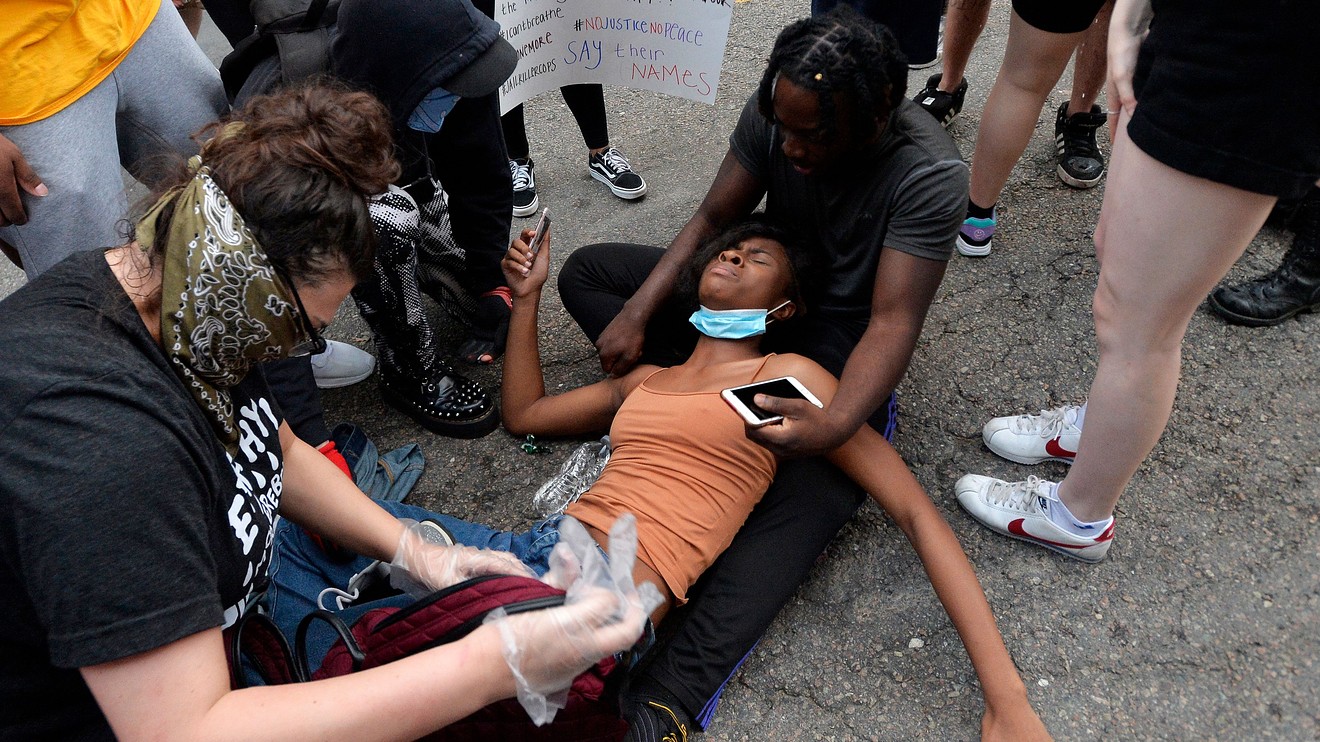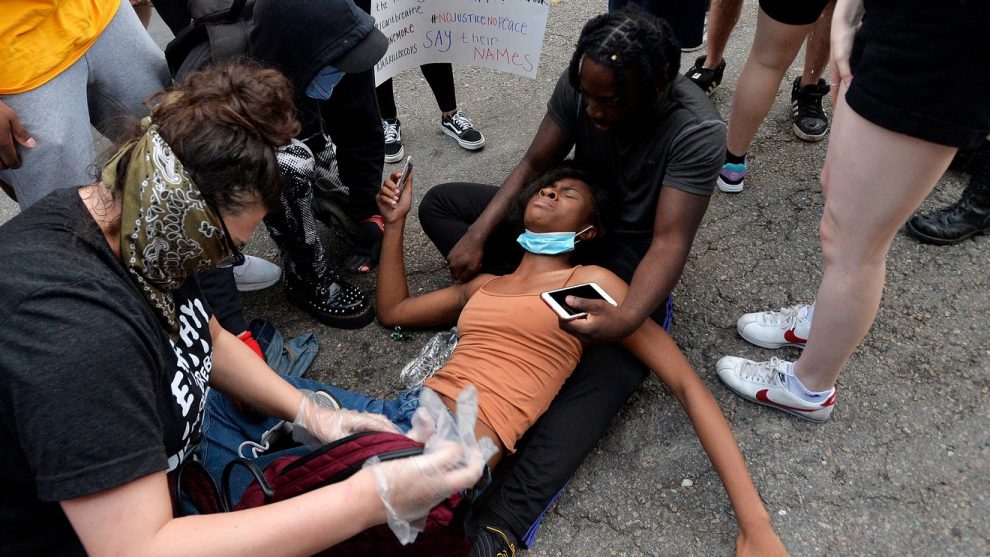
Across the country, Americans have gathered in support of the Black Lives Matter movement to protest police brutality and racism in the U.S. in the wake of the deaths of George Floyd, Ahmaud Arbery and Breonna Taylor. Most of the protests have been peaceful, but some have had violent confrontations with police and the National Guard. Some have resulted in looting and property damage.
There have been thousands of arrests — New York City police arrested more than 700 people on Monday night — and there have also been some injuries. Police shot a 20-year-old protester in Austin, Texas in the head with a “less-lethal” ammunition, leaving him in critical condition. A Florida woman suffered a fractured eye socket after police shot her with a foam rubber bullet.
A 22-year-old woman in Davenport, Iowa was fatally shot in her car as she left a peaceful demonstration because it had begun to turn violent, the New York Times reported. In Denver, Colorado, video footage documents what appears to be a non-police vehicle intentionally running over protesters.
One might assume that if an individual who has health insurance is injured at one of these protests, their health insurance will cover their medical expenses. But the reality is not quite as cut and dry.
Several Aetna CVS, -0.47% student health insurance plans that MarketWatch examined contain the following passage under the list of the plan’s exceptions and exclusions:
“Services and supplies that you receive from providers as a result of an injury from ‘your participation in a riot’. This means when you take part in a riot in any way such as inciting, or conspiring to incite, the riot. It does not include actions that you take in self-defense as long as they are not against people who are trying to restore law and order.”
“ ‘What constitutes a riot is in the eyes of the beholder’ ”
Asked what this means for students attending Black Lives Matter protests, Ethan Slavin, an Aetna spokesman, said that “students who are injured in a protest and require medical attention will be covered by their student insurance plan.”
Similarly, several UnitedHealthcare UNH, -2.38% plans that MarketWatch reviewed state that injuries sustained from “participation in a riot or civil disorder” or “commission of or attempt to commit a felony,” won’t be covered.
“UnitedHealthcare is committed to helping advance equality and supports every person’s right to assemble and protest peacefully,” said Maria Gordon-Shydlo, a company spokeswoman. “Our mission and covered benefits reflect that.”
Because Aetna and UnitedHealthcare don’t clearly define what a riot is, it’s possible an individual may not be covered if they attend a protest and get injured, said Sabrina Corlette, co-director of the Center on Health Insurance Reforms at Georgetown University’s McCourt School of Public Policy.
“What constitutes a riot is in the eyes of the beholder,” Corlette said.
“If you went to a peaceful protest and someone shot a rubber bullet and it hit you, you didn’t intend to go to a riot,” she said. But the insurance company might not see it that way, Corlette noted. “In this context, most individuals involved intended to go to peaceful protest. The fact that it became violent isn’t their intention.”
“ ‘I would be surprised if they used these exclusions against someone.’ ”
A spokesman for America’s Health Insurance Plans, a trade group representing most major insurers, said, “We are not aware of any blanket exclusions that would deny coverage for injuries or illnesses received during a protest.”
If an insurance company denies coverage for someone who needed medical care as a result of attending a protest, that person could appeal the insurer’s decision. But that could be a lengthy process, she said, and could even end up requiring a lawyer.
An insurer denying coverage for someone injured at one of the recent protests is highly unlikely, said Karen Pollitz, a senior fellow at Kaiser Family Foundation. “Participating in a demonstration is not illegal,” she said. “I don’t believe people should be concerned that if they demonstrate it will be excluded [by their insurance company].”
“I would be surprised if they used these exclusions against someone. In addition to a legal nicety, it would be insensitive to what’s going on.”
If someone’s claim is denied, “they should absolutely challenge insist the claim gets paid.”











Add Comment